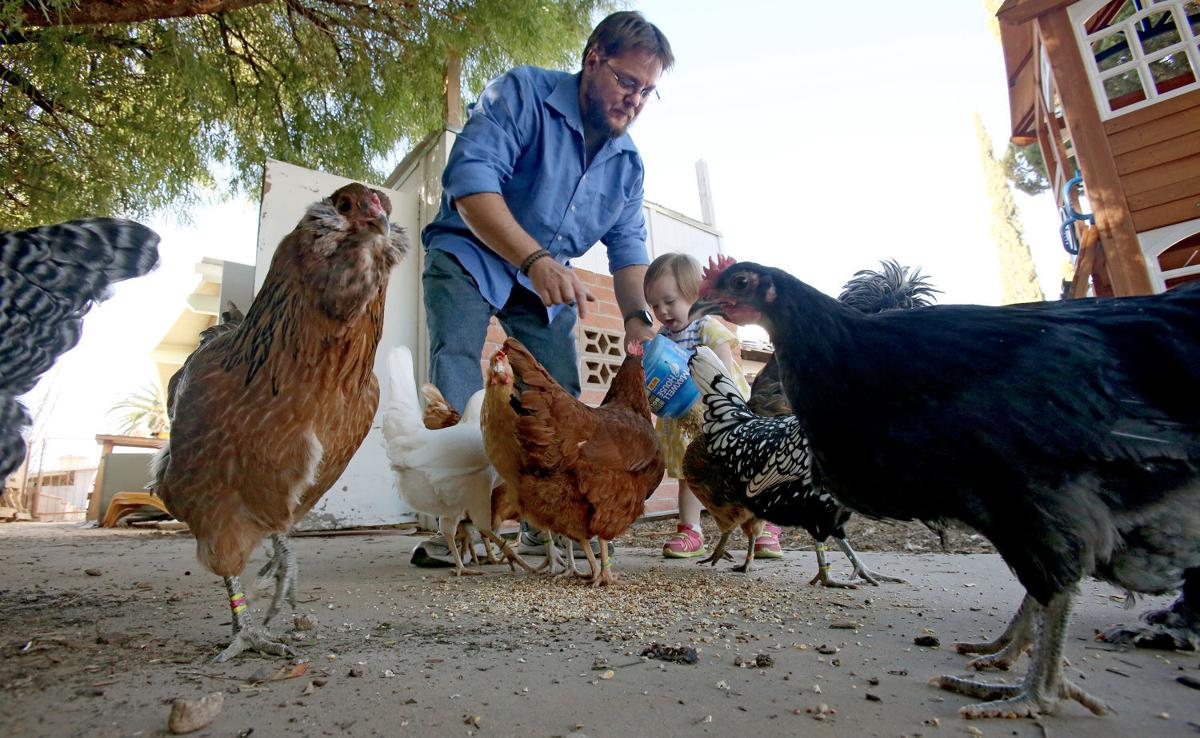Chicken supporters packed the Tucson City Council meeting Tuesday, applauding and cheering action to back their birds.
In a 7-0 vote, the City Council approved an urban agriculture text amendment to the city’s unified development code. It reduces barriers to raising backyard chickens and vegetable gardens, and it clarifies rules for community gardens and farmers markets.
The city has been working on the issue since 2009 and more than 300 people attended public meetings on the proposed changes, said Jim Mazzocco, interim director of the Planning and Development Services Department.
A key change is the way the city will calculate the maximum number of allowable food-producing animals at a residence. The policy will use “animal units.” A chicken will count as one unit and a turkey will count as four units, for example.
The amendment sets maximums for 24 animal units for a lot 16,000 square feet or less and 48 animal units for a lot 144,000 square feet or more, up from 24 fowl in the current rules. No male fowl are allowed.
It keeps a requirement that a backyard chicken coop must be placed at least 20 feet from a neighbor’s house, depending on the size of the coop and the size of the lot.
Laurie Clark, a self-described “chicken lady,” said she supports the changes because she’s owned 10 to 24 chickens at a time and “it’s really not a big deal.” Chickens are not smelly and they are quiet and funny, she said. She and her neighbor sell eggs and tomatoes at a farmers market, she said.
The new rules also require food and water that could attract wild animals to be secured.
Council Member Steve Kozachik said he has concerns about front-yard composting drawing wildlife to urban neighborhoods. But Council Member Karin Uhlich said the city shouldn’t over-legislate compost piles.
Kozachik also raised concerns about noise complaints regarding geese.
The code will be enforced based on complaints. The city received six to 10 complaints about chicken coops each year for the past few years, according to a staff report.
Council Member Richard Fimbres said complaints about barking dogs are a much bigger problem than complaints about noisy geese.
There were no changes to the rules about large farm animals. There are other city rules that apply to noises, smells and other nuisances.
The new rules will come back for reconsideration after two years.
The complete rules may be found at tucsonaz.gov/pdsd/sustainable-code-project-0





